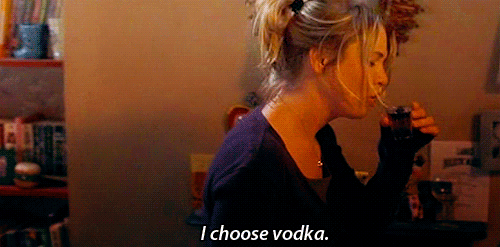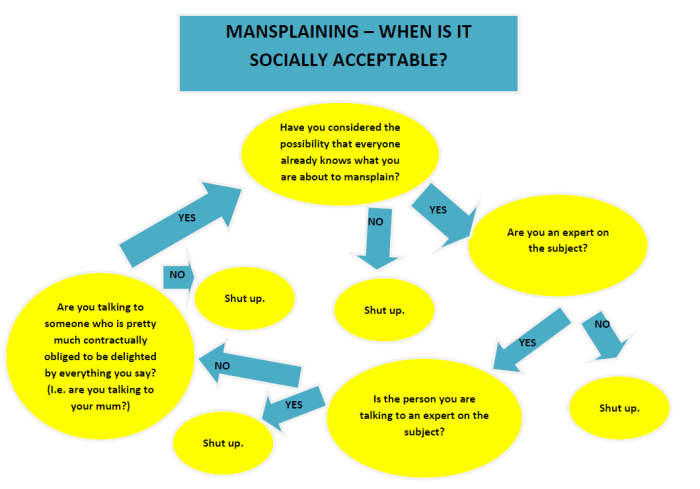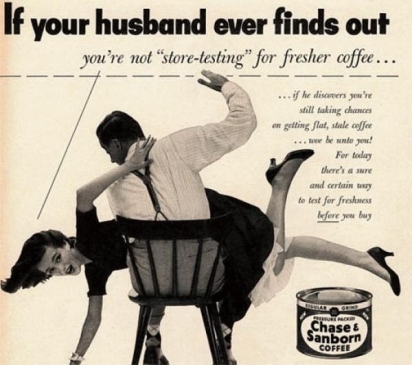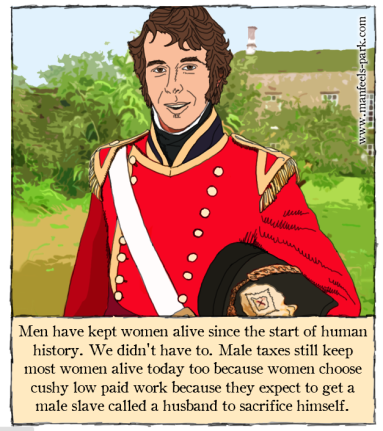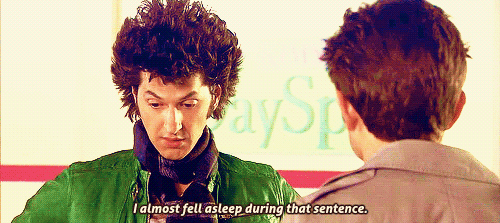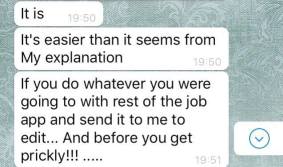Forty Years of Having a Female Body
By Bloody but unbowed

When you are six years old, a boy says he will put firecrackers up your cunt, and blow it up. He could do that, because you have a female body. It has a hole in it. You’re scared, but you can’t tell anyone.
When you are ten years old, neighbourhood boys make disgusted noises as you sit in the garden, in your swimsuit. They can do that, because you have a female body. You learn that your body is disgusting and must be hidden.
Your friend tells you about menstruation. You are horrified. You are incredulous that you have lived a decade on this earth without anyone informing you of this shocking, vile, and painful thing that is about to happen to your body. You’re not even quite sure where the hole is, that only females have, but blood is going to come out of it. Every month. For days at a time. For decades. The horror.
You get your first period, and it is distressing, and messy, and also shameful. Because it is shameful, you can’t talk to anybody about it. It must never be mentioned in general conversation. Possibly you can talk to your best friend. Nobody tells you that periods are shameful. It is understood. You have to learn to manage this female body as best you can, without anyone telling you how.
Your body decides, against your will, to grow two weird and worrying and sometimes painful lumps on your chest. Boys taunt you for the changes to your body that you can’t control. Grown men comment on your body. They can do that, because you have a female body. You can’t tell anyone about how distressed you are, because nobody talks about the things that boys and men do. Nobody tells you that you can’t talk about the things that boys and men do. It is understood. You accept that grown men can make comments about your thirteen-year-old body. This is normal. You’re always a little scared to go out.
You discover that if you put make-up on, it is easier to go outside. It’s like armour, except it doesn’t actually protect you. However, it will cover up some of the grotesque deficiencies that are inherent in your female body. Like the fact that your eyelashes aren’t naturally dark, and that you have hair on your legs. On your legs! Those legs that are also the wrong shape. Nobody tells you that you must shave your legs and use mascara, you just know you have to. Because you have a female body. You don’t have a lot of pocket money, but what you have you spend on mascara, and razors, and lip gloss. This shameful body must be changed.
A few years pass and you realise that the depression you often feel – the hollow, aching hopelessness, the boundless sadness, the feeling that nothing will ever, ever be all right – is due to the hormones that were described in the biology textbooks. There was nothing particularly wrong with you, it was just the effect of your natural female hormones. Your progesterone level drops as menstruation begins. The sadness doesn’t go away, but at least there’s an explanation for it.
Your first boyfriend explains shamefacedly that he doesn’t know a lot about “all that”. “Well, fucking educate yourself,” you think. But you don’t say it. The burden is on females to carry this secret female shame.
You discover that birth control pills help even out the effect of your devastating female hormones. You enjoy the feeling of control that comes from knowing when your period will turn up. It makes packing for holidays so much easier. Everything is a little bit easier.
You learn that the term “sexual harassment” covers all those horrible things that men say and do that are normal. It covers the man in the park saying horrible words to you, and the man on the train saying horrible words to you, and the man you kissed in that bar, who was so nice until you declined his further advances, saying horrible words to you. Vile, shocking words, that you would never use, are said to you and about you, by men you don’t even know. You learn – as if you didn’t already know – that you have no value. You’re just a hole. A walking hole.
You don’t like running at night because so many men shout at you.
Friends tell you that they don’t like the pill. “All those hormones,” they say. “It’s so unnatural.” You learn that because so many women take the pill, fish are born with birth defects or don’t know which sex they are. Fish are dying, because of all the women taking hormones. It’s all women’s fault. Also you might get deep-vein thrombosis and die, but nobody is really sure.
Your friend won’t take the pill because of the unnatural hormones. She takes the morning-after pill every time she fears she might be pregnant. She takes it eight times. Each time, her body is wracked with pain, incapacitated for days. Her female body. Because of the hormones. Eventually, she gets a coil. The copper T one, that can cause pain and make your periods even bloodier and even more painful. It doesn’t have any hormones. It’s just more natural.
You and your friends discuss female genital mutilation. Small girls are having their genitals mutilated to subdue them and make them sexually attractive to their captors. Your boyfriend comes in and asks if you really have to talk about that. It makes him uncomfortable.
You discover that the arm insert is even better than the pill, because it means you don’t have any periods at all, for years at a time. This is great. It’s fucking great. You don’t have to worry about a slowly spreading pool of blood ruining your office chair, or toxic shock syndrome. Also the mood swings are reduced, and you don’t have to remember to take a pill at the same time every day, or worry about what happens if you get sick or hungover and throw up. It feels like a respite in this relentless, complicated battle with your female body.
You realise that the films, books and songs all lied. There is no romance, just holes, and a pay gap that never seems to close. Still, you’re one of the lucky ones. You haven’t been raped yet.
You go to get your implant replaced and the nurse tries, oh so subtly, to steer you towards the hormone-free uterine implants. You resist. You love your period-taming hormone implant. You do still feel guilty about those fish, but you are so inured to guilt and shame, a little more won’t make any difference.
You become a volunteer at a women’s shelter. There is blood, and pain, and shame, and women bear all of it alone. All of the volunteers are female, even though men are allowed. All of the staff are female. The victims are female. The people who cause all the pain and make all the blood flow and force themselves into the female holes over and over again are all men. The thing they do is called “domestic violence”, and it is totally illegal but hardly anyone goes to prison for it.
Some people say that it is bigoted to point out that domestic violence is perpetrated mostly by men, against women. “It happens to men, too,” they say. Nobody said it didn’t.
Women sell their bodies to buy food for their children. They are slapped, punched, kicked, spat at and choked, by men. This is normal.
The pay gap is totally illegal.
You watch as a creepy middle-aged man starts a conversation with two teenage girls in a unisex toilet. You don’t know what to do.
You go to a feminist event to speak about the work at the women’s shelter. Everyone is polite and sympathetic. You talk to another volunteer, who works for an organisation that helps women get abortions, when men have forced their way into their female holes and made them pregnant. “Men get pregnant, too,” says the volunteer. “It’s important to use inclusive language.”
A woman suggests that it might be nice if there was a picture of a woman on a banknote. She receives so many threats from angry men that she has to go into hiding.
You learn that some men are women. They don’t have female holes, they haven’t grown up with the pain, and the blood, and the shame. But they say that they are women, so we must believe them. Of course they can come to the women’s shelter. The funds raised to help women must be shared with the men who say that they are women. It’s important to be inclusive.
Women are filmed being raped. They are slapped, punched, kicked, spat at and choked, by men. This is entertainment. Men masturbate to it. This is normal.
Some men who say that they are women take hormones. Female hormones. This helps them look more female, and that makes it easier for us all to pretend that these men are women. Nobody talks about the fish anymore.
You realise that the sadness isn’t just because of the female hormones. It is because this is what life is like: the blood, and the pain, and the shame, it is normal. This is all normal. The sadness never leaves you.
It becomes imperative that children who say they are not the sex they were born as be given hormones. Without hormones, they will literally die. This is not a problem – there are hormones for everybody. The fish are definitely forgotten.
The men who say that they are women demand to be given things that women are sometimes given. Awards and scholarships and political positions to promote women; these small measures that have been created to counteract, in some small way, all the blood and the pain and the shame that women suffer in this society built by men. The men who say that they are women get the awards, and the scholarships, and the political positions. They get women’s athletic prizes, too. It’s important to be inclusive.
The children need other drugs as well. Drugs that halt their development. Nobody knows what happens when children take these drugs, but it’s totally fine and anyone who questions this is committing literal violence and literally killing children.
There are still some spaces left for women, where they can escape the horrible words, and the men looking at them like they’re meat, and the violence. Public toilets are free of men; you can change your secret shameful tampons there in peace. Changing rooms are also free of men, so only women can see your shameful, hairy, malformed body. And rape crisis centres. When a man has forced himself into your female hole, you can get help from other people who also have female bodies, who know what the pain and the shame feels like.
The children need surgeries. Painful, devastating surgeries, to make them who they say they think they are. The children must be mutilated. Don’t ask; that’s literal violence.
The men who say that they are women point out that men commit violence. Yeah, we know, say the women, who are so tired by now. The men who say that they are women say that they must have protection from the men who commit violence against women and also against men who say that they are women. So the men who say that they are women must come into the spaces that are only for women. To the toilets, and the changing rooms. Oh, and the rape crisis centres. It’s important to be inclusive.
One man who says that he is a woman says that women have to touch his genitals, even if they don’t want to. Because his genitals are female. He doesn’t have the hole that only females have.
Lesbians who don’t want to have sex with men who say that they are women are told that they will change their minds if they are raped.
Some of the men who say that they are women commit violence against women. In prisons, and hospitals, and changing rooms, and toilets. They force themselves into the female holes, the ones that only women have. The women are given morning-after pills.
The president of the United States has been accused of rape by girls as young as fourteen. The prime minister of the United Kingdom appears to be a domestic abuser. This is fine.
If women say that the men who say that they are women are men, the men who say that they are women say that this is violence. The men who say that they are women must now be protected from the women’s violence. To protect themselves from women’s violence, the men who say that they are women turn up masked and armed to events where women meet to talk to each other, and punch women who dare speak.
Nobody talks about the possibility of creating separate spaces for the men who say that they are women. They must have the women’s spaces.
Some of the men who say that they are women pay doctors to castrate them and create holes in their bodies. The holes are wounds that need to be dilated every day and easily develop infections. These holes are called vaginas. Women’s holes are now called front holes. This is inclusive.
The men who say that they are women, and the men who support the men who say that they are women, and the women who support the men who say that they are women, and the women who say that they are men who say that they are women, say that women’s words are literal violence, and take their words away from them.
We’re not supposed to talk about this.
A list of the links in this blog post:
Mallika Rau: About That Period Photo That Broke the Internet
Miranda Yardley: Jonathan Yaniv is a Predator
Jim Connolly: “Stealthing” – What You Need to Know
Tan Zu Hao: Stealthing Is Sexual Assault
Sophie Maullin: Stealthing isn’t a ‘sex trend’. It’s sexual assault – and it happened to me
Julie Bindel: What Women Want? You’ve Got No Idea
Andrea Dworkin: I Want a 24-Hour Truce During Which There Is No Rape
Susan McKay: Paid For: My Journey through Prostitution, by Rachel Moran
Lauren Goode: Why Everything from Transit to Iphones Is Biased Toward Men
Julie Bindel: Not All Menstruators are Women? This Madness Has to Stop
Simon Hattenstone: Caroline Criado-Perez: “Twitter has Enabled People To Behave in a Way They Wouldn’t Face to Face”
Gail Dines: The Porn Crisis
Gail Dines: Growing up in a Pornified Culture
Jennifer Bilek: Who Are the Rich, White Men Institutionalizing Transgender Ideology?
Ray Blanchard: Early History of the Concept of Autogynephilia
Camilla Tominey and Joani Walsh: NHS Transgender Clinic Accused of Covering Up Negative Impacts of Puberty Blockers on Children by Oxford Professor
Hana Carter: Outrage As Man Who Sometimes Wears Dresses Is Given Place on “Top 100 Women in Business” List
CBS: 3 Connecticut Female Athletes File Federal Discrimination Complaint over Transgender Competition
Ella Whelan: Lily Madigan Is Not a Woman
RT: ‘Robbing women of opportunities’: Fury after transgender NZ weightlifter wins double gold
Jane Clare Jones: Disciplining Martina: Heretics and the Church of Trans Normativity
Dhejne C, Lichtenstein P, Boman M, Johansson AL, Långström N, Landén M.: Long-term follow-up of transsexual persons undergoing sex reassignment surgery: cohort study in Sweden
Michael Biggs: The Tavistock’s Experiment with Puberty Blockers
Corinne Redfern: The Living Hell of Young Girls Enslaved in Bangladeshi’s Brothels
James Shupe: You Can’t Feel Like a Girl: An Essay by Jamie Shupe
Madeleine Kearns: The “Trans” Child as Experimental Guinea Pig
No Regrets: A List of Reasons for People Who Report Regret in Studies and What Therapists Think
Stella Morabito: Trouble in Transtopia: Murmurs of Sex Change Regret
Meghan Murphy: Trans activism is excusing & advocating violence against women, and it’s time to speak up
Fair Play for Women: How Often Are Transgender People Murdered?
Meghan Murphy: Discontinuation of grant to Vancouver Rape Relief shows trans activism is an attack on women
Anna Slatz: EXCLUSIVE: 15-year-old alleged victim of Jessica Yaniv speaks out
James Kirkup: The Silencing of the Lesbians
Barra Kerr: Pronouns Are Rohypnol
April Halley: The CBC Are As Corrupt as Crime Statistics in Canada
Ciaran McGrath: Transgender Shock: Hospitals “Routinely” Let Men Identifying As Women Stay on Female Wards
Rachel Hosie: Unisex Changing Rooms Put Women at Risk of Sexual Assault, Data Reveals
Alison Campsie: Female Spaces Need Better Protection After Trans Woman Sex Attack on Girl, Say Campaigners
Madeleine Kearns: California’s Transgender Prison Policy Is a Disaster for Women
Margaret Hartmann: What Happened to the 20 Women Who Accused Trump of Sexual Misconduct
Maya Forstater: I Lost My Job for Speaking Up About Women’s Rights
Julie Moss: INTERVIEW: Maria MacLachlan on the GRA and the aftermath of her assault at Speaker’s Corner
Julie Bindel: It’s Time for Progressives to Protect Women Instead of Pronouns
Amy Hunter: Sex Reassignment Surgery: When Things Go Wrong
Sex Change Regret: 27-year-old man regrets having surgery
Elise Solé: People Are Angry over This Safe Sex Guide, Which Calls the Vagina a “Front Hole”
Karen Yossman: Meet Meghan Murphy, the “Transphobic” Feminist Booted Off Twitter… But Who Won’t Be Silenced
Other Helpful Resources:
4th Wave Now: Resource Index
Walt Heyer: Sex Change Regret
Website Of James Shupe (Formerly Jamie Shupe), Ex-Transgender And Former Non-Binary Person

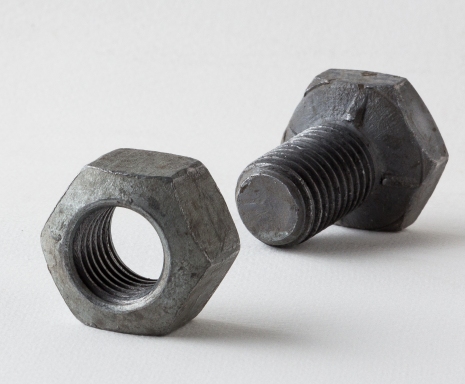
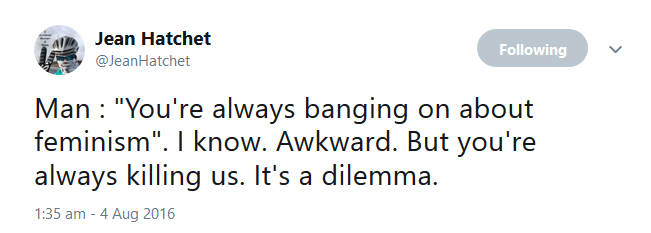
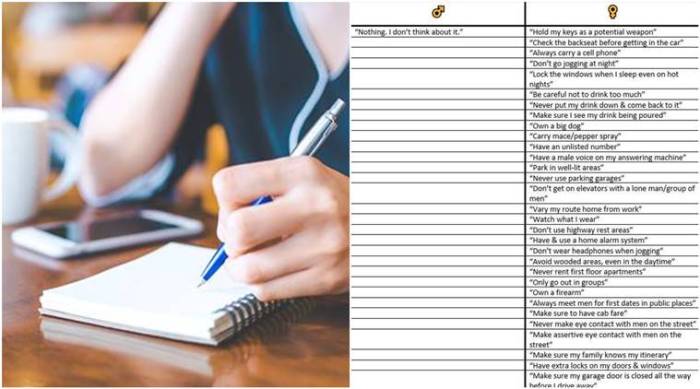

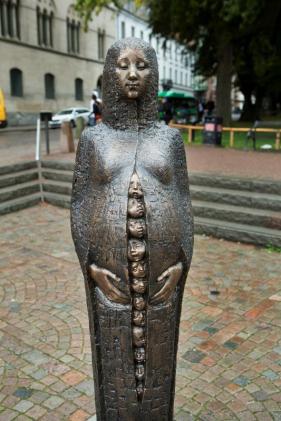

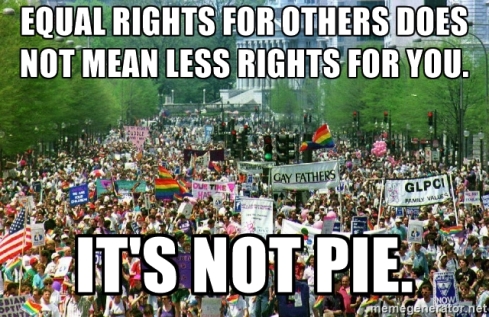
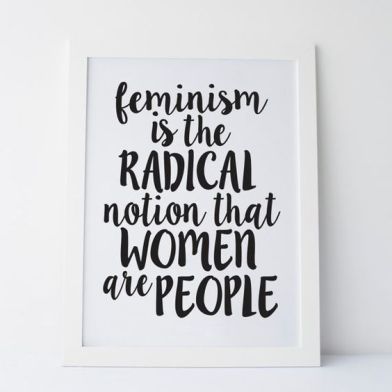
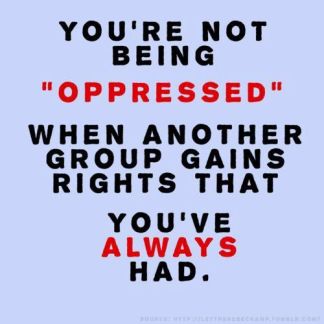
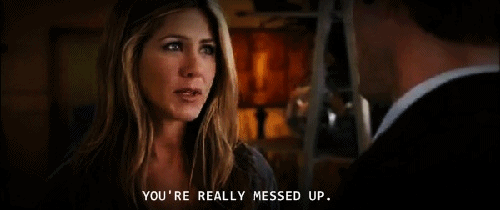
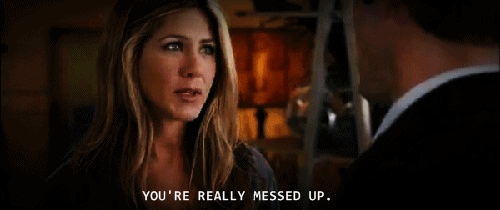
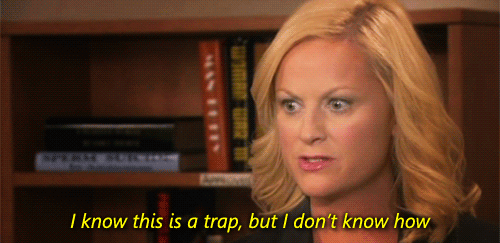
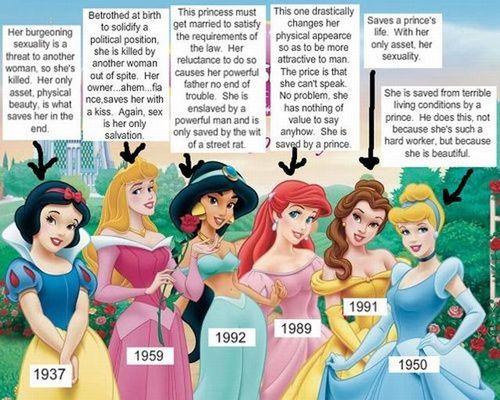
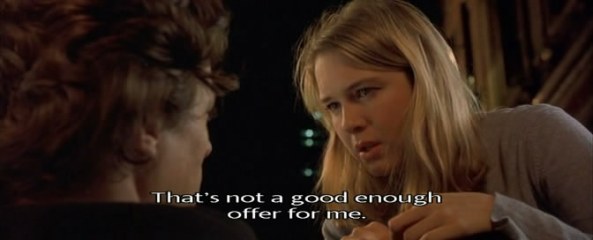
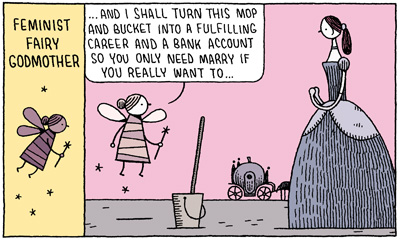
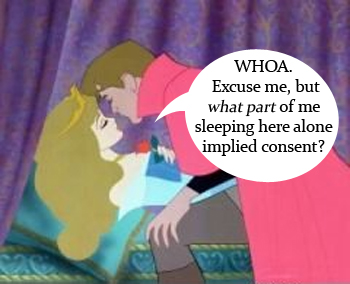
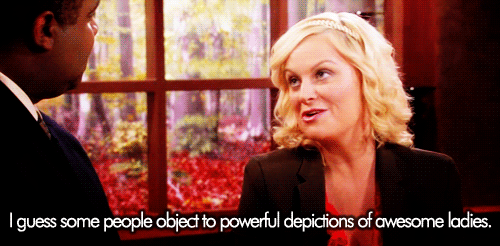
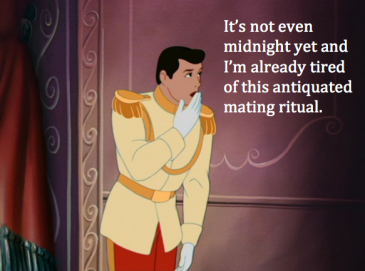

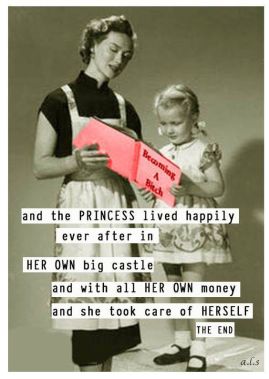 Women are exposed to constant coercion designed to make them conform to the social standard of what a woman ought to be. And what a woman ought to be, apparently, is dependent and controlled. The Cinderella narrative that we are all fed with during our formative years offers no scope for Cinderella to say, “Fuck you and your patriarchal norms – I refuse to get sucked into your creepy construction of the nuclear family”.
Women are exposed to constant coercion designed to make them conform to the social standard of what a woman ought to be. And what a woman ought to be, apparently, is dependent and controlled. The Cinderella narrative that we are all fed with during our formative years offers no scope for Cinderella to say, “Fuck you and your patriarchal norms – I refuse to get sucked into your creepy construction of the nuclear family”.